Intellectual Developmental Disabilities
Investigators
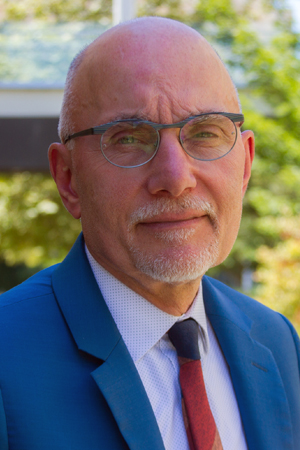
Distinguished Professor, Department of Psychiatry and Behavioral Sciences, UC Davis School of Medicine
Phone: 916-703-0234
E-mail: ljabbeduto@ucdavis.edu
Leonard Abbeduto is a distinguished professor in the Department of Psychiatry and Behavioral Sciences at UC Davis. He has been a UC Davis faculty member and was MIND Institute director from 2011-2023, following 24 years at the Waisman Center IDDRC in Wisconsin. His research is designed to describe, understand, and treat the linguistic, cognitive, and behavioral impairments associated with intellectual disability, especially fragile X, down syndrome, and autism. His current research is focused largely on the measurement of treatment efficacy and the development of technology-delivered treatments. He has published more than 200 peer-reviewed articles, chapters, commentaries, and books. His program of research has been funded virtually continuously by NICHD since 1985. Dr. Abbeduto is the founding Principal Investigator/Program Director of the MIND Institute IDDRC.
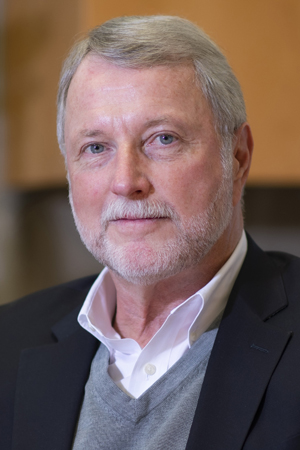
University of California Distinguished Professor, Department of Psychiatry and Behavioral Sciences and Center for Neuroscience, School of Medicine; Core Investigator, California National Primate Research Center
Phone: 916-703-0225
Email: dgamaral@ucdavis.edu
David G. Amaral, Ph.D. received his undergraduate education at Northwestern University and graduated with a degree in Psychology. He then moved to the University of Rochester where he received a joint Ph.D. in Neuroscience and Psychology. He conducted postdoctoral research at the Department of Anatomy and Neurobiology at Washington University. He then moved to the Salk Institute for Biological Studies where he remained for 13 years. During this period, he was also an adjunct professor in the Department of Psychiatry at UC San Diego.
He joined the University of California, Davis in 1995 as a Professor in the Department of Psychiatry and Behavioral Sciences and the Center for Neuroscience. He is also a core scientist at the California National Primate Research Center. Dr. Amaral was the Beneto Foundation Chair and Research Director of the MIND Institute from 1998 to 2018.
His laboratory pursues research programs dealing with the neurobiology of primate social behavior and with the development and neuroanatomical organization of the primate and human amygdala and hippocampal formation. He has also carried out a longstanding program designed to understand the organization of brain regions involved in memory. His research now also includes postmortem studies of the autistic brain and magnetic resonance imaging studies of children with autism spectrum disorders. As Research Director of the MIND Institute, he launched a comprehensive and multidisciplinary analysis of children with autism called the Autism Phenome Project to define biomedical characteristics of different types of autism. This project is leading to more effective, hypothesis driven research on the causes of each type of autism and ultimately to more effective treatments. He has also spearheaded efforts to establish reliable animal models of autism.
Beginning in 2009, He was appointed to the National Advisory Mental Health Council of the National Institute of Mental Health. In May of 2009, he was elected President of the International Society of Autism Research that holds the annual International Meeting for Autism Research and publishes the journal Autism Research. In July 2009, he was awarded the title of University of California Distinguished Professor as acknowledgment of a meritorious academic and research career. In the fall of 2009, he was elected as a Fellow of the American Association for the Advancement of Science. He co-edited the book Autism Spectrum Disorders with Geri Dawson and Daniel Geschwind published by Oxford University Press that was published in May of 2011. He was the Director of the UC Davis Autism Center of Excellence. In 2015, he became Editor-in-Chief of Autism Research, the journal of INSAR. In 2019, Amaral was elected to the prestigious US National Academy of Medicine.
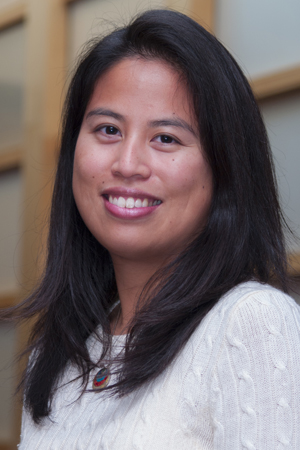
Assistant Professor of Clinical Pediatrics, Section of Developmental Behavioral Pediatrics, School of Medicine
Phone: 916-703-0278
E-mail: kangkustsiri@ucdavis.edu
Kathleen Angkustsiri is a developmental-behavioral pediatrician with interests in neurodevelopmental disabilities including autism, chromosome 22q11.2 deletion syndrome, and fragile X syndrome. She completed her B.A. in Psychology and Human Biology at Stanford University and received her M.D. from New York University School of Medicine. She trained in Pediatrics at Children’s Hospital and Research Center in Oakland, and she completed her fellowship in Developmental-Behavioral Pediatrics at the University of California, Davis in 2009. She is involved in research on dysmorphology in children with autism, behavioral characteristics of children with 22q11.2DS, and clinical trials.
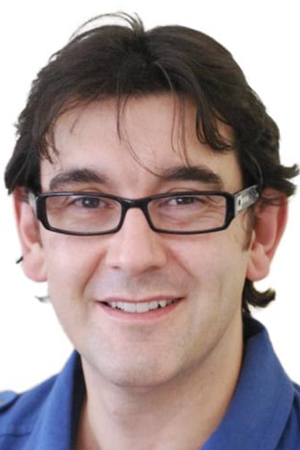
Professor, Department of Medical Microbiology and Immunology, School of Medicine
Phone: 916-703-0405
E-mail: pashwood@ucdavis.edu
Paul Ashwood’s research program is directed at characterizing the role the immune system may play in some subjects with autism. There is a highly complex and interconnected interface between the immune and central nervous systems. The nervous and immune systems share some similarities. They are both highly networked systems that communicate by the release of chemical mediators with many of these mediators exerting effects on both systems. Products of the immune system can have actions that affect mood, sleep, behavior and neurodevelopment. Furthermore, cells of the immune system express receptors that can respond to neuropeptides and products released from the nervous system. In addition, recent studies of genetic linkages in autism have demonstrated that many possible gene abnormalities observed in autism could have important implications for the immune response. He is interested in exploring whether the health of one system is integral to the healthy development of the other. His efforts will be to fully characterize the immune response in children with autism, in particular the cellular immune response. His original research in his native England was the first to characterize gastrointestinal pathology observed in some cases of children with autism.

Professor, Department of Physiology and Membrane Biology
Associate Dean for Research Infrastructure
UC Davis, School of Medicine
Phone: 916-703-0377
E-mail: mdbauman@ucdavis.edu
Melissa Bauman, Ph.D., is Professor in the Department of Physiology and Membrane Biology and faculty at the UC Davis MIND Institute. Her research program uses preclinical models to evaluate risk factors and develop novel therapeutic interventions for neurodevelopmental disabilities. Her current research focuses on understanding how changes in the prenatal environment, in particular the maternal-fetal immune environment, may increase the risk for autism, schizophrenia and other neurodevelopmental conditions. Her laboratory utilizes a collaborative, team-science approach to research as demonstrated through her roles of Associate Director of the MIND Institute IDDRC (Intellectual and Developmental Disabilities Research Center) and Director of the UC Davis Conte Center.
In addition to her research interests, she also has a strong commitment to advancing women's careers in science and medicine and served as the director of the UC Davis Women in Medicine and Health Sciences (WIMHS) program from 2018-2024.
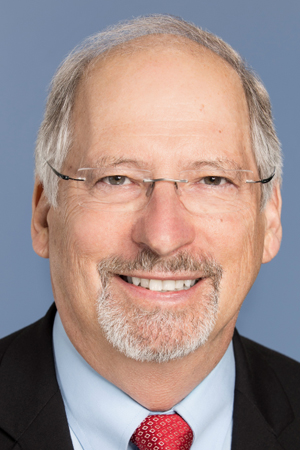
Professor, Department of Neurological Surgery, School of Medicine
E-mail: rfberman@ucdavis.edu
Robert Berman, a neuroscientist whose research focuses on cellular mechanisms of brain injury, is currently examining the effects of neonatal toxin exposure on brain development and behavior. This research is carried out in collaboration with the Center for Children’s Environmental Health. His laboratory recently developed a set of behavioral testing procedures for evaluating social behaviors in rodents, an essential step in the development of useful models for the study of neurodevelopmental disorders like autism. He is also a member of the NeuroTherapeutics Research Institute at UC Davis that is studying the genetic disorder Fragile X-associated Tremor Ataxia. His laboratory is using transgenic mice to model fragile X in order to understand the underlying pathophysiology and to test novel therapeutics to improve neurological outcomes. His research and training activities have been funded by the NIH for the past 30 years, and his research is currently funded by NINDS and NIEHS.
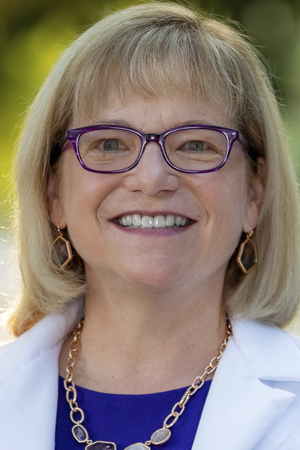
Chair, Department of Neurology; Professor, Department of Neurology
Phone: 916-734-3588
Amy Brooks-Kayal's research focuses on the effects of seizure activity on neurotransmitter systems with particular emphasis on understanding the molecular regulation of GABA(A) receptor expression during epileptogenesis and development of novel therapeutics for the prevention, treatment and cure of epilepsy.
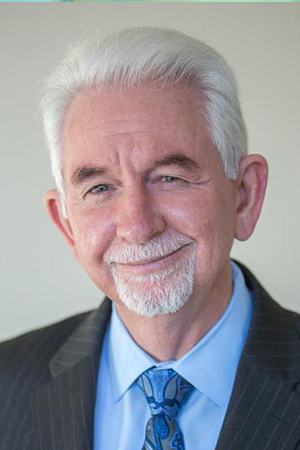
Director, Behavioral Health Center for Excellence and the Early Psychosis Research and Clinical Programs
Phone: 916-734-7783
Email: cscarter@ucdavis.edu
Cameron S. Carter's clinical interest is the early diagnosis and treatment of schizophrenia and other cognitive mental disabilities. His research focuses on the pathophysiology of disturbances in cognition in mental disorders such as schizophrenia and obsessive-compulsive disorder, with the goal of developing more effective therapies to improve patients' chances of rehabilitation. Carter also is involved in development of new treatments for cognitive disability in schizophrenia and other brain conditions. A key element of the philosophy of his lab is that good clinical research can proceed only if it is being constantly informed by ongoing theoretical and methodological progress in basic cognitive neuroscience, and that the experiments of nature provided by clinical brain disorders may lead to powerful additional insights into the neural basis of normal cognition.
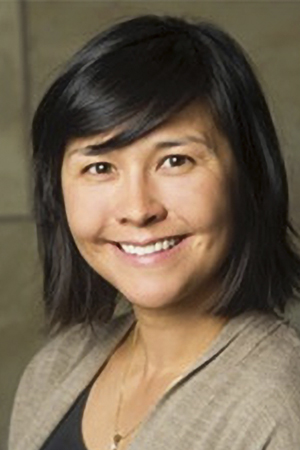
Assistant Professor, Department of Biochemistry and Molecular Medicine
Phone: 530-752-1357
Email: mydennis@ucdavis.edu
Twitter: @meganamsu
Megan Dennis’s research at the UC Davis Genome Center and MIND Institute uses genome sequencing to pinpoint genes contributing to innovative human phenotypes and their role in disease, primate evolution, population diversity, and gene regulation. Of particular interest are genes duplicated since the human-chimpanzee divergence, which are largely understudied as they are difficult to assess using standard genetic methods. This includes developing novel sequencing methods to capture complex genomic variation.
Going beyond genetic studies, her group also employs experimental methods using human cell lines and zebrafish to quickly and robustly assay function of genes related to neurological disease on cellular phenotypes and neurological development. Her group focuses on improving diagnostics and elucidating the underlying mechanisms of neurological disorders including autism, intellectual disability, and epilepsy.
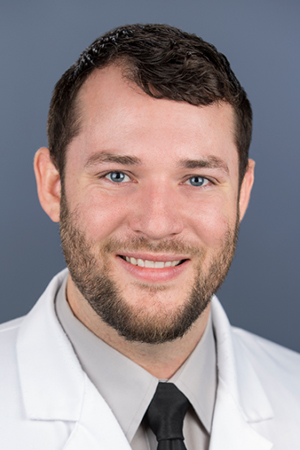
Neurology and Institute for Regenerative Cures
Kyle Fink received his Ph.D. in Neuroscience from Central Michigan University and the University of Nantes. He has focused on therapeutic development for neurodegenerative diseases, brain injury, and some forms of brain cancer. His research team focuses on genetically-linked neurological disorders such as CDKL5 deficiency (rare intractable pediatric epilepsy), Angelman’s Syndrome, and Huntington’s disease that are targetable with gene editing molecules in addition to some forms of brain cancer. His lab is identifying candidate sequences through whole genome sequencing and transcriptomics using a bioinformatics approach for structural variation discovery and genotyping that identify underlying common genetic variants. Gene variants linked to disease phenotype are examined for “actionable domains” for which we create therapeutic artificial transcription factors. Patient-derived samples can be used to create in vitro neuronal disease-in-a-dish models using novel induced neuron techniques. His team builds on the existing strengths and expertise at UC Davis and utilizes the necessary resources to develop a therapeutic pipeline in which precision medicine can be used to identify novel disease causing genetic variants to advance Precision Neurotherapeutics to clinical applications.
His current research focuses on two major goals: the therapeutic application of transcription activator-like effector (TALE) and clustered regularly interspaced short palindrome repeats (CRISPR) to modify gene expression in genetically-linked pediatric neurological diseases; and the development of delivery systems that can safely and efficaciously target the central nervous system with our novel gene editing platforms. These goals specifically address: how to deliver these potent therapeutics to maximize the biodistribution in the central nervous system; how to increase the specificity of each construct to limiting off-target effects; and how to minimize the immune response to increase safety and the therapeutic potential of this approach. They have used known information regarding JHD and CDKL5 deficiency to guide construction of potent, precise gene modifying modalities- CRISPR/Cas9 and TALE. These platforms can turn on or enhance transcription of a gene, transcriptionally silence expression, cause permanent epigenetic changes, or remove a piece of DNA via targeted double stranded breaks essentially allowing for custom modifications to be made at the genomic level.
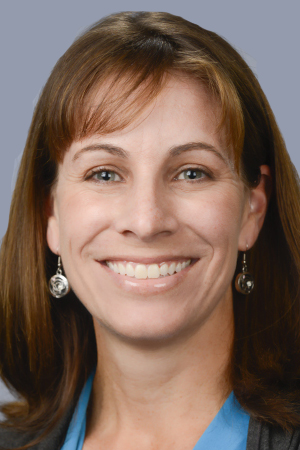
Carrie Finno received her veterinary degree from the University of Minnesota. Following graduation, she completed a one-year internship in Large Animal Medicine and Surgery at Minnesota, before coming to UC Davis to complete a three-year residency in Large Animal Medicine and Surgery. She went on to complete a Ph.D. in Comparative Pathology at UC Davis, and then returned to Minnesota to join their faculty as an Assistant Professor. After two years on their faculty, she once again returned to UC Davis as a faculty member in genetics and a clinical role with the Equine Medicine Service. Her research is focused on companion animal genetics, particularly the genetic and environmental risk factors associated with equine neuromuscular diseases.
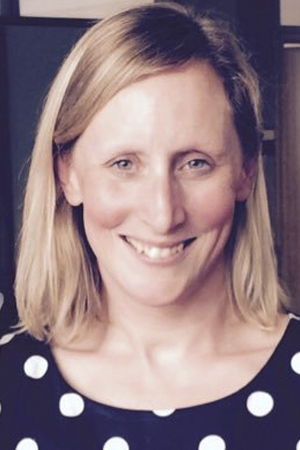
Associate Adjunct Professor and Researcher, Anatomy, Physiology & Cell Biology
Phone: 530-754-0605
E-mail: mgareau@ucdavis.edu
Characterizing the microbiota-gut-brain axis in models of inflammatory bowel disease and following infection with an enteric bacterial pathogen. Determining the mechanisms involved in the development of the microbiota-gut-brain axis in early life.
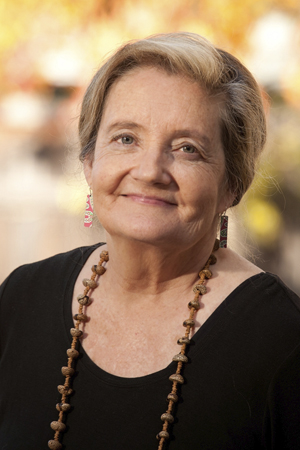
Founding Medical Director, UC Davis MIND Institute, Distinguished Professor, Endowed Chair in Fragile X Research, Department of Pediatrics, UC Davis School of Medicine
Phone: 916-703-0247
E-mail: rjhagerman@ucdavis.edu
Randi Hagerman is interested in a variety of treatments for children with neurodevelopmental disorders including fragile X syndrome, premutation involvement and autism. She is currently carrying out several controlled trials of targeted treatments for fragile X including ganaxolone, sertraline, AFQ056 and RO491753; the latter two are mGluR5 antagonists which will also likely be helpful for premutation involvement and in children with autism. The combination of targeted treatments and education/behavioral interventions is also an important research endeavor that is highlighted in our IDDRC, specifically the combination of parent implemented language intervention combined with lovastatin, another targeted treatment for fragile x. Studies regarding premutation involvement have focused on comorbidities, prevention and treatment of those with the fragile X-associated tremor/ataxia syndrome. She has completed a memantine study and will carry out an allopregnanolone study in the future in those with fragile X. The premutation neuron is also vulnerable to a variety of environmental toxins and background genetic effects which can enhance the penetrance of clinical involvement. The role of mitochondrial dysfunction in premutation involvement and mechanisms of RNA toxicity are studied jointly with a molecular team including Paul Hagerman, Flora Tassone, Isaac Pessah and Cecilia Guilivi.
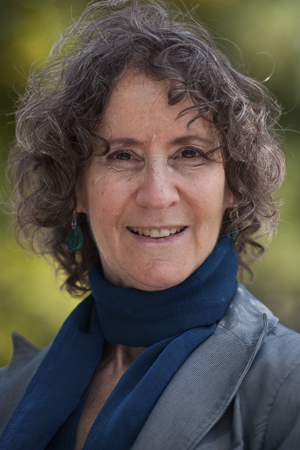
Professor and Vice Chair for Research, Department of Public Health Sciences, School of Medicine. Director, NIH-funded UC Davis Environmental Health Sciences Core Center. Director, Program on Environmental Epidemiology of Autism and Neurodevelopment, the CHARGE (CHildhood Autism Risk from Genes and the Environment), and MARBLES (Markers of Autism Risk in Babies — Learning Early Signs) Studies
Phone: 530-752-3025
E-mail: iher@ucdavis.edu
Irva Hertz-Picciotto, Professor at the University of California Davis MIND Institute and Director of the NIH-funded UC Davis Environmental Health Sciences Center, is an environmental epidemiologist with over 300 scientific publications addressing environmental exposures, including metals, pesticides, air contaminants and endocrine disrupting compounds; their interactions with nutrition, genes or social factors; and their effects on pregnancy, the newborn, and child development. She designed and directs CHARGE (Childhood Autism Risk from Genes and Environment), the first large, comprehensive population-based study of environmental factors in autism, and MARBLES (Markers of Autism Risk in Babies – Learning Early Signs) to search for early markers that will predict autism, starting in pregnancy. Hertz-Picciotto has also led several cohort studies of toxic chemicals and both pregnancy outcomes and early child development in Mexico, Chile, and eastern Europe. She has served on scientific advisory panels for the U.S. Environmental Protection Agency, the NIH National Toxicology Program, and the California Governor’s Proposition 65 committee. She was elected President of two major professional epidemiology societies, and chaired four National Academy of Sciences/Institute of Medicine Panels on: Agent Orange and Vietnam Veterans, and Breast Cancer and the Environment. Dr. Hertz-Picciotto has taught epidemiologic methods on four continents and mentored over 75 graduate students and postdoctoral scholars. In 2011, she received the Goldsmith Lifetime Achievement Award from the International Society for Environmental Epidemiology. Recently she co-founded (with the Learning Disabilities Association) Project TENDR (Targeting Environment and Neuro-Developmental Risks), a collaborative effort of scientists, clinicians, policy-makers and advocates that aims to decrease the incidence of neurodevelopmental disabilities by reducing neurotoxicant exposures that contribute to them.
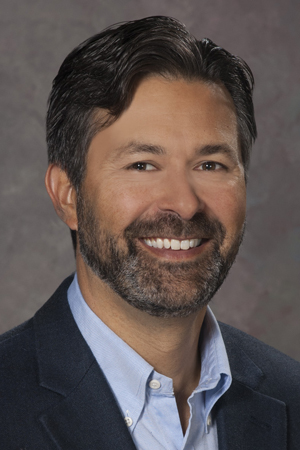
Director, Translational Psychophysiology and Assessment Laboratory (T-PAL), MIND Institute. Professor, Department of Psychiatry and Behavioral Sciences, UC Davis School of Medicine
Phone: 916-703-0249
E-mail: drhessl@ucdavis.edu
David Hessl is the Director of the Translational Psychophysiology and Assessment Laboratory (T-PAL) and Co-Director of the Neurobehavioral Analysis Core of the IDDRC. His research is focused broadly on elucidating the behavioral, cognitive and physiological basis of fragile X-associated disabilities and autism, and on the development of novel outcome measures for treatment studies. Current projects are focused on identifying markers of neurodegeneration in premutation carriers, evaluation of the efficacy of cognitive training and behavioral treatment for children with fragile X syndrome, and development and validation of cognitive tests for use as outcome measures in clinical trials for fragile X and Down syndromes, and other forms of intellectual disabilities.
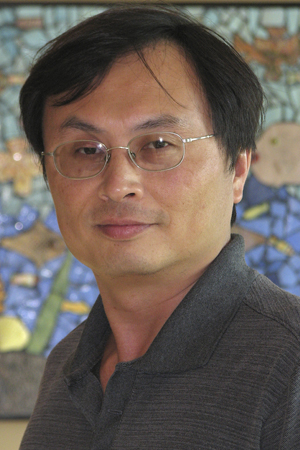
Associate Professor, Department of Medical Pathology and Laboratory Medicine, School of Medicine
Phone: 916-703-0392
Email: lwjin@ucdavis.edu
Lee-Way Jin is a neuropathologist and neuroscientist with expertise in the molecular analysis of brain diseases and in brain banking. He is currently the principal investigator of the NIA-funded Neuropathology Core of the Alzheimer’s Disease Center at UC Davis. He is also the UC Davis principal investigator of the “University of California Pediatric Neuropathology Consortium,” with the mission to collect and study cells and brain tissues from patients with neurodevelopmental disorders such as autism, fragile X syndrome, and Rett syndrome. He also conducts basic science research in his laboratory. His scientific goals include identifying potential cellular and molecular therapeutic targets in Rett syndrome, a genetic form of autism spectrum disorder, and (2) designing and testing small molecule compounds specific for these targets that may have a potential for future Rett syndrome and autism therapy. His current research focus is on glial cell abnormalities in Rett syndrome as well as neuropathology of fragile X syndrome.
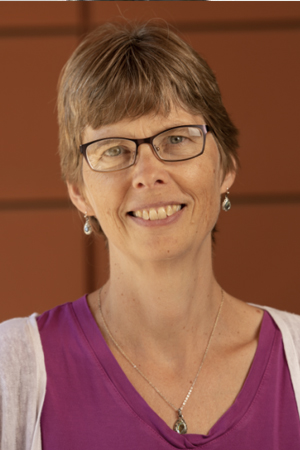
Professor, Medical Microbiology and Immunology, UC Davis Genome Center
UC Davis MIND Institute
Phone: 530-754-7598
Email: jmlasalle@ucdavis.edu
Janine LaSalle is a professor in the Department of Medical Microbiology and Immunology. She has expertise in epigenetics, molecular biology, genomics, and bioinformatics. She also serves as Associate Director of Genomics at the Genome Center and Deputy Director of the Environmental Health Sciences Center and is a long-time member of the MIND Institute faculty. She has developed a collaborative and interdisciplinary research program in epigenomics in neurodevelopmental disabilities, and she is an internationally known expert on molecular mechanisms of environmental epigenetics. She is also the Associate Director of Genomics at the Genome. Her laboratory also has expertise and equipment required for molecular assays, including DNA pyrosequencing for methylation analyses, chromatin immunoprecipitation, and fluorescence in situ hybridization.
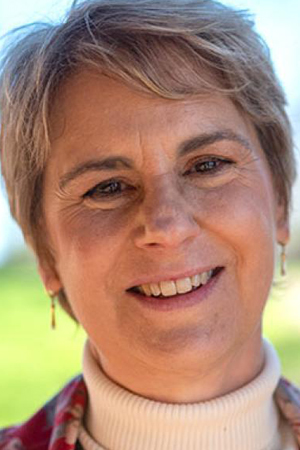
Professor, Department of Molecular Biosciences, School of Veterinary Medicine;
Chair, UC Davis Pharmacology and Toxicology Graduate Group
Phone: 530-752-1970
Email: pjlein@ucdavis.edu
Pamela Lein is a professor of neurotoxicology in the Department of Molecular Biosciences in the School of Veterinary Medicine and a member of the MIND Institute faculty. She has developed a collaborative and interdisciplinary research program in basic and applied aspects of developmental neurobiology, and she is an internationally known expert on cellular and molecular mechanisms of neurotoxicology. Her work has identified environmental risk factors that converge on signaling pathways that mediate activity-dependent remodeling of neuronal connectivity that are also known to be influenced by autism linked genes. In collaboration with Judy Van de Water, she is leveraging in vitro models to investigate how cytokines upregulated in autism modulate neurodevelopmental processes that shape neural circuits in the developing brain.
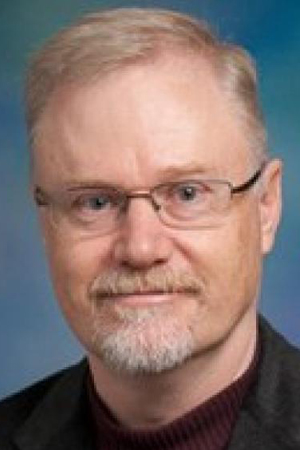
UC Davis Center for Mind and Brain, Professor, UC Davis Department of Psychology
Phone: 530-752-3025
E-mail: sjluck@ucdavis.edu
Steve Luck is the Director of the UC Davis Center for Mind and Brain, a MIND Institute faculty member, and a co-director of the IDDRC’s Neurobehavioral Analysis Core. His research focuses on the neural and cognitive mechanisms of attention and working memory in healthy young adults, the development of these functions in typical infants, and dysfunctions these functions in psychiatric and neurological conditions such as schizophrenia. He is also one of the world’s leading experts on event-related potentials, which provide a safe and painless means of measuring the brain’s electrical activity from the scalp in humans. In addition to using ERPs to study typical and atypical cognitive function, He leads a yearly 10-day NIH-funded summer workshop on ERPs (the ERP Boot Camp) and supervises the development of an open-source Matlab toolbox (ERPLAB Toolbox).
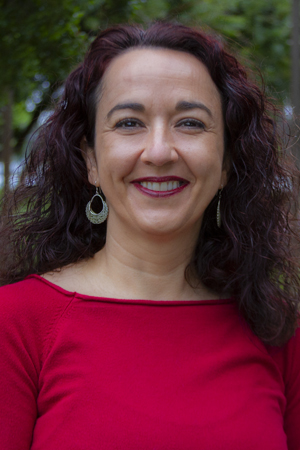
Associate Professor, Institute for Pediatric Regenerative Medicine,
Shriners Hospital of Northern California
Phone: 916-453-2163
Email: vmartinezcerdeno@ucdavis.edu
Veronica Martínez Cerdeño received a B.S. in 1998, from Complutense University, Spain. In 2002, received her Ph.D. from the Autónoma University of Madrid, Spain. After completing doctorate in Neuroscience, Dr. Martinez Cerdeño completed her postdoctoral training at Columbia University in New York, at UCSF in San Francisco, and at the MIND Institute at UC Davis Medical Center.
Currently, she serves as Associate Professor at the Department of Medical Pathology and Laboratory Medicine at UC Davis. She also is a Faculty member of the Institute for Pediatric Regenerative Medicine at Shriners Hospital of Northern California/UC Davis Medical Center where she joined in 2008.
She is a member of the Society for Neuroscience, Cajal Club, International Society for Stem Cell Research, American Association for the Advancement of Science, European Researchers Abroad, International Society for Autism Research, Spanish Society of Neuroscience, and European Society of Neuroscience.
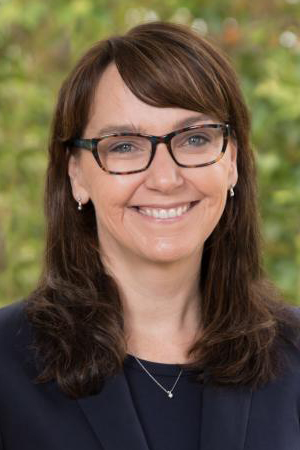
Director, UC Davis Center for Neuroscience
Phone: 530-752-8114
E-mail: kmcallister@ucdavis.edu
Kimberley McAllister’s research is focused on studying the cellular and molecular mechanisms underlying the formation of synaptic connections in the cerebral cortex during development and in neurodevelopmental disabilities. Many of the genes that have been associated with neurodevelopmental disabilities, such as autism and schizophrenia, encode synaptic proteins that are studied n the McAllister Lab. In addition, she is also interested in understanding the role for immune molecules on neurons in regulating brain development and how they mediate the effects of environmental risk factors in neurodevelopmental disabilities. Current projects are focused on understanding the mechanisms underlying the roles for neuroligin and Shank proteins in synapse dynamics during early cortical development, the role for cytokines and major histocompatibility complex I molecules in limiting synapse formation and in mediating the effects of maternal immune activation on brain development, and in targeting recently identified cytokine receptors in the brain for development of new diagnostic tools and therapies for neuro-immune-based psychiatric disorders.
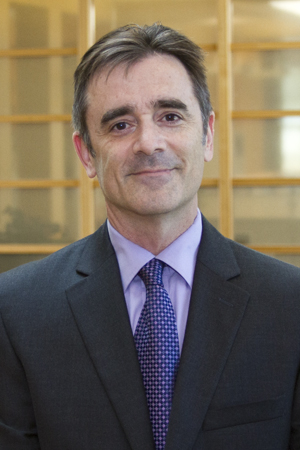
Assistant Professor, Department of Psychiatry and Behavioral Sciences, UC Davis School of Medicine
Phone: 916-703-0435
Email: scnoctor@ucdavis.edu
Stephen Noctor investigates development of the cerebral cortex under normal and pathological conditions. Studies in the Noctor lab center on factors that regulate the production of neural and glial cells, and the migration of newborn neurons. Current projects are focused on how neural-immune interactions in the prenatal brain regulate precursor cell function. Additional work in the lab is identifying and phenotyping cortical neural precursor cells in the fetal non-human primate model.
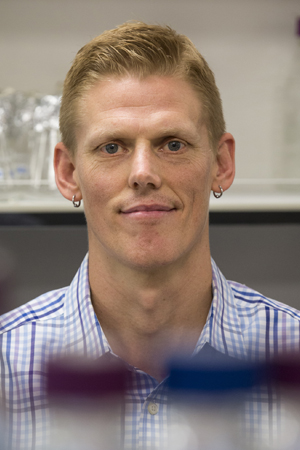
Assistant Professor, College of Biological Sciences: Neurobiology, Physiology and Behavior
Email: asnord@ucdavis.edu
My research explores gene regulatory circuits and chromatin dynamics in the brain, studying how these features contribute to brain development, evolution, and function. I apply a combination of genomics, mouse and cell-based models, and human genetics. My work is rooted in basic and translational science, with an ultimate goal of understanding the biological components of human diseases of the brain and improving clinical care of afflicted individuals. To that end, I perform both experimental work and computational analysis to reveal function of primary DNA sequence, epigenomic modifications, and chromatin structure.

Professor, Department of Psychiatry and Behavioral Sciences, UC Davis School of Medicine
Phone: 916-703-0373
Email: cnordahl@ucdavis.edu
Christine Nordahl’s research is focused on understanding the neural basis of autism. She utilizes structural and functional neuroimaging to investigate alterations in brain structure and connectivity in toddlers with autism. Her current research projects are aimed at identifying meaningful subgroups or phenotypes of children with autism based on behavioral, immunological, and neuroimaging data. She is also interested in evaluating how factors such as biological sex modulate both typical and atypical brain development during early childhood.
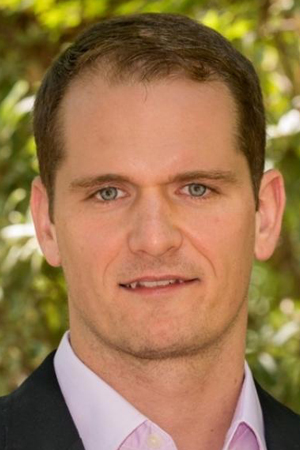
Assistant Professor, Department of Chemistry, UC Davis
Phone: 530-752-2595
Email: deolson@ucdavis.edu
Our lab studies a class of compounds that we call psychoplastogens, or small molecules capable of promoting neural plasticity. Such compounds have enormous potential for treating a wide variety of neuropsychiatric diseases including depression, anxiety, and addiction. We use a combination of synthetic chemistry, molecular neurobiology, and behavioral neuropharmacology to understand the fundamental mechanisms underlying the effects of psychoplastogens on the nervous system, and develop next generation neurotherapeutics.
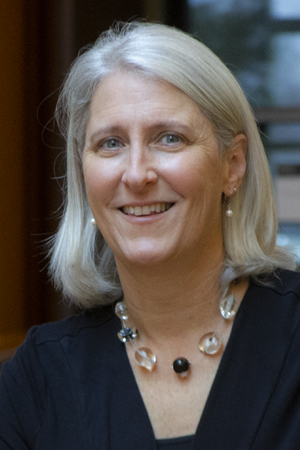
Endowed Professor and Vice Chair for Research, Department of Psychiatry and Behavioral Sciences, UC Davis School of Medicine
Phone: 916-703-0259
Email: sozonoff@ucdavis.edu
Sally Ozonoff is the Director of the IDDRC’s Clinical Translational Core. Her research program focuses on the behavioral phenotype of very young children with or at risk for autism and methods for earliest detection of autism. She is studying the onset of both autism and ADHD in a prospective investigation that follows high-risk infants from birth through age 3. She is also studying risk factors, both biological and behavioral, for regressive patterns of onset. Another current project is focused on developing a video-based screening tool for identification of autism in infancy.
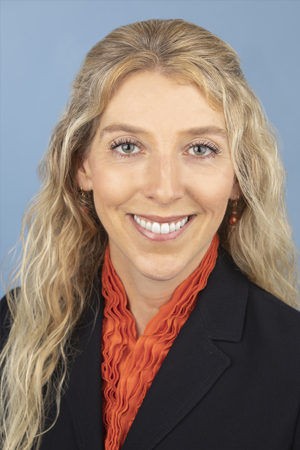
Assistant Professor, UC Davis MIND Institute, Department of Public Health Sciences, UC Davis School of Medicine
Phone: 530-752-3226
E-mail: rjschmidt@ucdavis.edu
Rebecca J. Schmidt’s research focuses on understanding how environmental exposures, primarily those occurring during gestation, interact with genetic susceptibility to influence neurodevelopmental outcomes for children. Because nutritional factors have prominent influences on gene expression and are especially important during the perinatal period, her research has largely focused on nutritional effects on neurodevelopment as they interact with the genome, including producing the first evidence for a potentially protective effect of folic acid, and a first example of gene x environment interaction in autism with one-carbon metabolism genes. She co-leads an effort to develop a semi-validated early life environmental exposure questionnaire to be used in autism studies, and is expanding research on gene-environment and nutrient-environment interactions in the context of autism, working towards identifying mechanisms potentially involved, especially those relating to epigenetics, as this field provides groundbreaking framework for these intersections.
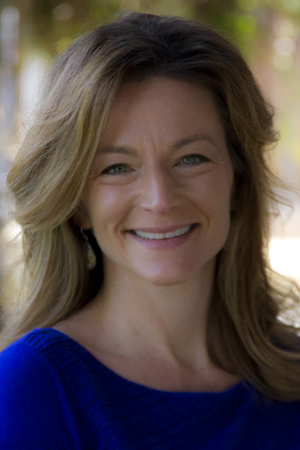
Associate Professor, Department of Psychiatry and Behavioral Sciences, School of Medicine
Phone: 916-703-0372
E-mail: cschumann@ucdavis.edu
Cynthia Schumann completed her undergraduate education at the University of California, San Diego, and then attended graduate school at the University of California, Davis, where she received a doctoral degree in Neuroscience. She conducted postdoctoral research at the University of California, San Diego, where she also moved to her first faculty position in the Department of Neurosciences. She joined the MIND Institute faculty in 2009 as assistant professor in the Department of Psychiatry and Behavioral Sciences. Her previous research experience includes postmortem studies of the autistic brain and magnetic resonance imaging studies of children with autism. She is continuing her postmortem studies to investigate the neuroanatomy and neuropathology of autism, as well as leading program development for a brain tissue resource center at the MIND Institute.

Director, Attention, Impulsivity, Regulation (AIR) and ADHD Program UC Davis MIND Institute; Co-Center Mentoring Director of the MIND Institute; Co-Director, Mentored Clinical Research Training Program – CTSC, UC Davis; Director, UC Davis Schools of Health Mentoring Academy; Professor, Department of Psychiatry and Behavioral Sciences, UC Davis School of Medicine
Phone: 916-703-0294
Email: jschweitzer@ucdavis.edu
Julie Schweitzer is the co-director of the clinical and translational core of the IDDRC, Director of the ADHD Program at UC Davis MIND Institute and co-Center Mentoring Director of the MIND Institute. Her research program studies attention, self-control, and reward-related processes and its development in children and adults using a variety of research tools. She has experience with a number of clinical populations including attention-deficit/hyperactivity disorder, substance use related disorders, schizophrenia, autism and fragile x. A primary goal of her research program is to develop a more precise understanding of decision-making in self-control situations and how development and ADHD affect decision-making during adolescence and young adulthood. Other projects include developing and testing personalized treatments in neurodevelopmental disabilities.

Associate Director, UC Davis Genome Center, Associate Professor, Department of Biochemistry and Molecular Medicine, Pharmacology, MIND Institute, UC Davis School of Medicine
Phone: 530-754-9134
Email: djsegal@ucdavis.edu
Almost every disease has a genetic component. Often this information is used only to determine how condemned a person is to develop disease. The Segal lab would like to use the genetic information to fix the disease. A guiding principle for our work has been to study how nature does what it does, then attempt to use that knowledge to make useful tools to improve public health, either through increased knowledge or therapeutic intervention. Projects in the Segal Lab revolve around engineering zinc finger, TALE, or CRISPR DNA-binding proteins for specific applications, such as: epigenetic therapy for Angelman and Rett Syndromes, gene therapy to create permanent disruptors of the HIV genome; and studying genetic variation and human diseases, specifically SNP functions in Coronary Artery Disease.
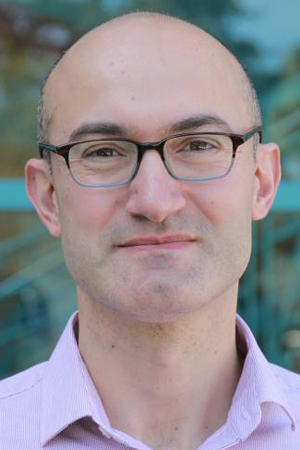
Professor, Department of Electrical and Computer Engineering
Phone: 530-752-7300
Email: eseker@ucdavis.edu
Erkin Şeker joined the Department of Electrical and Computer Engineering at UC Davis as an assistant professor in 2011 and is currently a professor. He is a co-director for the Center for Neuroengineering and Medicine. He has served as the Graduate Program Chair of Electrical and Computer Engineering Graduate Program between 2019-2021. He received his Ph.D. degree in Electrical Engineering from the University of Virginia (UVA) in 2007, where he developed techniques to control mechanical and morphological properties of nanoporous gold. During his postdoctoral appointment in the Department of Chemistry at UVA he investigated material-biomolecule interactions and developed microfluidic flow control schemes. Between 2009 and 2011, as a research associate at the Center for Engineering in Medicine at Harvard Medical School, he developed multiple electrode arrays for neural electrophysiology applications and spearheaded the development of microsystems for monitoring transcriptional and secretory dynamics at a cellular-level in the context of metabolic dysregulation. He is the recipient of Outstanding Research Award and Outstanding Graduate Teaching Assistant Award from the Department of Electrical Engineering at UVA, Fund for Medical Discovery Award from Massachusetts General Hospital, an UC Davis - Graduate Studies Distinguished Graduate and Postdoctoral Mentorship Award, a University of California Lab Fees Research Grant, an NSF CAREER Award, and a NIH NIBIB Trailblazer Award. He served as an Associate Scientific Advisor for Science Translational Medicine and was selected to participate in National Academy of Engineering’s Annual Frontiers of Engineering Education Symposium, as well as a BMES Cellular and Molecular Bioengineering Young Innovator. His current research interests include nanoporous metals, electrochemical biosensors, multifunctional neural interfaces, and microfluidic tissue chips.
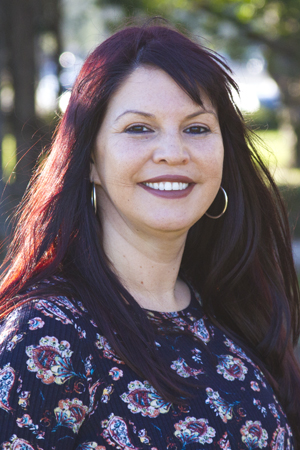
Associate Professor, Department of Psychiatry and Behavioral Sciences; University of California Davis School of Medicine
Phone: 916-734-8531
E-mail: jsilverman@ucdavis.edu
The overarching goal of her research is to apply her 17 years of training and experience with rodent model systems to design and implement effective translation strategies for discovering medical treatments for neurodevelopmental disabilities and intellectual disability. Her predoctoral research in Molecular and Behavioral Neuroscience at the University of Maryland, School of Medicine, Maryland Psychiatric Research Center employed preclinical rat models of psychiatric disorders, such as schizophrenia and drug abuse. In 2007, she was recruited for postdoctoral training and research to lead in management of translational and behavioral phenotyping research projects in mouse models of autism within the laboratory of Jacqueline Crawley at the National Institute of Mental Health Intramural Research Program. She joined the University of California Davis and MIND Institute in 2012. Her research projects have employed a multi-tiered comprehensive phenotyping strategy, that has led to the discovery of clinically relevant phenotypes in mutant rodent models of human genetic diseases associated with autism, Fragile X syndrome, 22q13 deletion (Phelan-McDermid), Angelman, Prader-Willi and Duplication 15q syndromes. In 2015, she was awarded space and resources to develop an independent research program on rare genetic developmental disabilities characterized intellectual disabilities and pediatric epilepsies. The Silverman laboratory uses rodent preclinical model systems with overarching themes: we focus on rare genetic disorders and use novel model systems in mice and rats, we incorporate global neurophysiology, electroencephalography and neuroimaging by magnetic resonance, we design innovative, translational, quantitative outcome measures, we develop novel rat models that identify environmental risk factors for neurodevelopmental disabilities, and we are elucidating gene by environment interactions in these custom-created in vivo model systems. Recent manuscripts related to this work were published in high profile journals (Copping et al., 2017; Berg et al., 2018; Adhikari et al., 2018; Copping et al., 2019; Berg et al., 2020). She was recently named a Fellow of the International Behavioral Neuroscience Society and serves on the the council.
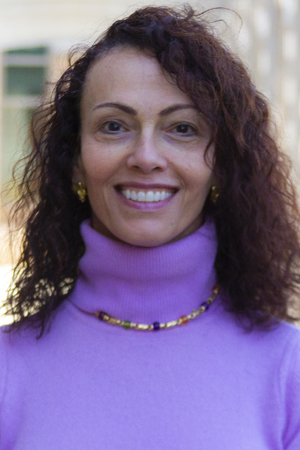
Professor, UC Davis MIND Institute, Department of Psychiatry and Behavioral Sciences, UC Davis School of Medicine
Phone: 916-703-0270
Email: marsolomon@ucdavis.edu
My work focuses on the cognitive neuroscience of autism and more specifically on the development of higher cognition (cognitive control and learning) in children, adolescents, and young adults. As a postdoctoral fellow at UC Davis, Department of Psychiatry, and the MIND Institute, I obtained a broad background in clinical assessment, and carried out research on executive functions and psychosocial intervention in older higher functioning children and adolescents with autism under the Mentorship of Sally Ozonoff. I then received a K08 Career Development Award to work with Dr. Cameron Carter to use cognitive neuroscience methods including fMRI to study cognitive control, and reward processing in this same population. From 2010-2012, I was appointed to serve on the InterAgency Autism Coordinating Committee (IACC) by HHS Secretary, Kathleen Sebelius. I also am a licensed clinician and have been the Director of the MIND Institute Social Skills Intervention Program for over 10 years. I serve as a Faculty Mentor for both the NIH funded Interdisciplinary Autism Research Training Program (T32 MH073124) and the Building Interdisciplinary Careers in Women’s Health (BIRCWH) grants.

Professor in Psychiatry and Behavioral Sciences
Phone: 916-703-0254
Email: astahmer@ucdavis.edu
Aubyn Stahmer is an expert in the translation of evidence-based autism research to community-based practice and delivery. The main goals of her research include developing ways to help community providers, such as teachers and therapists, help children with autism and their families by providing high quality care. She is an internationally respected expert in the use of naturalistic developmental behavioral interventions which are validated treatments for autism. She has conducted extensive research in the areas of parent coaching, early intervention, inclusive education and services research in autism spectrum disorders. She also leads several grants funded through the U.S. Department of Education that involve adapting evidence-based practices for children with autism in collaboration with teachers and community providers. She is also interested in examining key ingredients of efficacious interventions to help with use in the community. She also works closely with Sally Rogers, developer of the Early Start Denver Model (ESDM) approach to early autism intervention. Together they examine methods of increasing access to evidence-based care to families of children with autism in rural and underserved areas. She is widely published and a frequent presenter at annual professional meetings in the field of services to children with autism. She is an editor of Autism: International Journal of Research and Practice. In addition, she is very involved in the autism community, participating in the California Best Practice Guidelines Committee and the National Standards projects, developing guidelines for autism treatment.
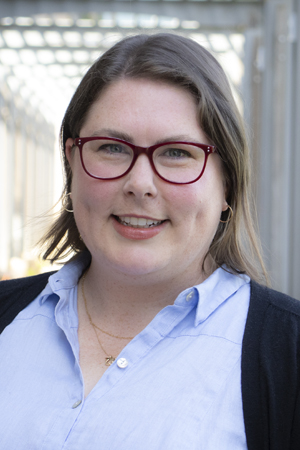
Assistant Professor, Psychiatry and Behavioral Sciences
Phone: 916-703-0479
Email: mtalbott@ucdavis.edu
Meagan Talbott, Ph.D., is a developmental psychologist and an Assistant Professional Researcher in the Department of Psychiatry and Behavioral Sciences. She received her Ph.D. from Boston University and subsequent T32-funded post-doctoral training through the Autism Research Training Program at the UC Davis MIND Institute. Her research focuses on early communication and language development in infants at-risk and toddlers with autism spectrum disorders, with the overall goal of improving early identification and targeted treatments. Her current research projects include an NIH-funded project developing a distance-based telehealth screener and assessment of autism symptoms and infant development and a NARSAD Young Investigator Grant examining neurobiological correlates of communication development in toddlers with autism participating in early intervention studies.

Assistant Professional Researcher, Department of Psychiatry and Behavioral Sciences
Phone: 916-703-0467
E-mail: ajthurman@ucdavis.edu
Angela Thurman's research at the UC Davis MIND Institute focuses on characterizing the dynamic processes underlying the development of language and other skills in individuals with neurodevelopmental disabilities, particularly autism, Down syndrome, fragile X syndrome and Williams syndrome. Because development stems from a continuous interplay of multiple influences across time, unpacking the influences of the behavioral phenotypes (areas of strength and challenge) in neurodevelopmental disabilities provides insight into the factors supporting and impeding development and how this differs across neurodevelopmental disabilities.
Her current projects are focused on characterizing developmental similarities and differences across different neurodevelopmental disabilities and identifying the factors influencing child development. She is also interested in the development and validation of new methods for measuring cognitive, emotional, and behavioral skills across the lifespan in individuals with neurodevelopmental disabilities. The long-range goal is that this work will help identify the extent to which similar and/or different processes should be targeted in intervention efforts across neurodevelopmental disabilities.

UC Davis Center for Children’s Environmental Health, Professor, Department of Internal Medicine, UC Davis School of Medicine
Phone: 530-752-2154
E-mail: javandewater@ucdavis.edu
Judy Van de Water is a professor in the Division of Rheumatology, Allergy and Clinical Immunology in the Department of Internal Medicine, and Associate Director for Biological Sciences at the MIND Institute. She is an internationally recognized immunologist who has conducted ground-breaking research on the roles of immune dysfunction and autoantibody production in the etiology of autism, including the effects of maternal autoantibodies during gestation. Dr. Van de Water is currently translating her maternal autoantibody biomarker for autism risk into a commercially available diagnostic test and developing potential therapeutics. She is also the director of the UC Davis Center for Children’s Environmental Health and conducts research on the environmental factors contributing to altered neurodevelopment and immune dysregulation.
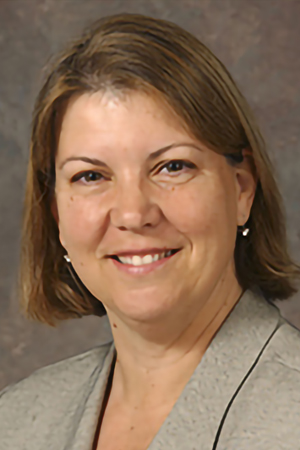
Associate Research Professor, Department of Obstetrics & Gynecology, UC Davis School of Medicine
Phone: 916-734-6670
E-mail: ckwalker@ucdavis.edu
Cheryl Walker, MD, is an Obstetrician Gynecologist who has been working to understand the role of the gestational environment in the development of autism and developmental disabilities for the past several years. Her early research concentrated on the impact of infections and immunologic responses in reproductive health and pregnancy outcomes. She transitioned her focus to reproductive epidemiology over a decade ago, and began working to understand the complex influences of maternal physiology, medical conditions and obstetric interventions on neurodevelopmental outcomes including autism spectrum disorders. Working with various data sources, including self-reported data, objective information from medical records, biological samples and large administrative databases, she is trying to understand how the gestational environment responds to maternal conditions that result systemic inflammation, metabolic derangements, and placental suboptimality, and what implications these alterations have for neurodevelopment.
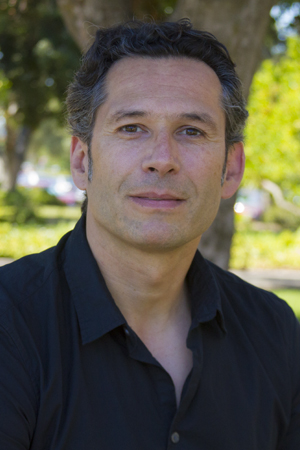
Assistant Professor, Department of Pathology, UC Davis School of Medicine, Assistant Investigator, Shriners Hospitals for Children, Shriners Hospitals for Children
2425 Stockton Blvd.
Sacramento, California 95817
Phone: 916-453-2189
E-mail: kzarbalis@ucdavis.edu
Konstantino Zarbalis’ research interests focus on the molecular and cellular mechanisms that direct the development of the craniofacial skeleton and forebrain. Particular emphasis is put on the analysis of the molecular program underlying the differentiation of cranial neural crest cells. Additional projects investigate the cues that guide the migration, differentiation, and connectivity of cortical neurons. In our studies we take advantage of mouse lines with striking craniofacial or neurodevelopmental defects caused by mutations in specific genes.
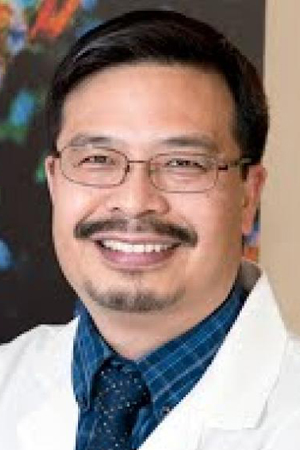
Professor, Department of Biochemistry and Molecular Medicine,
School of Medicine
The Zhou lab studies morphogenetic signaling in neural development and regeneration. They are primarily interested in tissue/organ morphogenesis that is regulated by several inductive factors such as Wnts. Incorrect activity and timing of morphogenetic signaling during development frequently result in embryonic death or severe birth defects.
Currently the Zhou lab is investigating the molecular and cellular mechanisms of several common developmental disabilities and their prevention strategies using Wnt signaling mutants as the research model. They are also investigating the role of Wnt signaling in neural stem cells and related regeneration process to enhance their therapeutic potential for patients with related genetic diseases, brain tumors, and injured nerve tissues.

